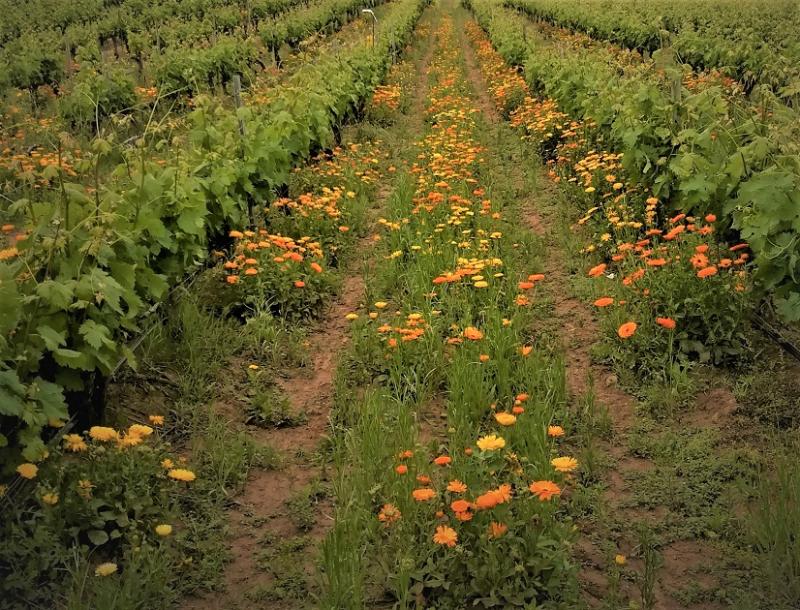Soil is a non-renewable resource of high socioeconomic value that harbors an infinite number of organisms (biodiversity) responsible for essential ecological functions (multifunctionality) that imply ecosystem services relevant to society. The preservation of soil quality is fundamental in preventing losses in agricultural yields and promoting crop quality. Within the multifunctional soil network, different groups of organisms play different roles in processes occurring at different scales, ranging from bacterial and fungal communities to, for example, nematode and microarthropod communities. In particular, the study of nematode communities allows the calculation of soil degradation indices and metabolic footprints, which are essential for soil health assessment.
In this context, the SosVidSoil project (reference TED2021-129169B-I00) led by Raquel Campos Herrera (ICVV) and Sergio Ortega Álvarez (Universidad Rey Juan Carlos) based on the hypothesis that the abundance and diversity of soil organisms, their interrelationships, and associated ecological functions, will be higher in soils subject to more sustainable agronomic practices, such as organic production and zero tillage. SosVidSoil starts by considering the vineyard as a model agrosystem due to its great socio-economic relevance in investigating the impact of different soil and pest management practices in vineyards of northern Spain (DOCa Rioja and DO Navarra) on the presence and abundance of communities of selected soil organisms (bacteria, fungi, nematodes, and microarthropods) and their ecosystemic functions. This project will address three specific objectives: to identify and quantify soil organisms (bacteria, fungi, nematodes, and microarthropods) by combining traditional and molecular methods (massive next-generation sequencing), to assess selected ecosystem services associated with soil biota, and to integrate the concepts of biodiversity and multifunctionality to identify indicators of soil health and resilience. To this end, 24 vineyards (12 per DO) will be investigated according to two factors: pest, disease, and weed management (organic or integrated) and soil management (traditional tillage or cover cropping).
SolVidSoil is a two-year proposal funded with 126,000 € by the Ministry of Science and Innovation through the State Research Agency, within the program "Proyectos de Transición Ecológica y Transición Digital 2021". From December 2022, a multidisciplinary team composed of researchers from ICVV, Rey Juan Carlos University, the University of La Rioja, the Government of La Rioja, and the University of Athens will work together to ensure the achievement of the proposed activities. Our challenge is to provide objective data that assess the impact of different agronomic management practices on soil health to define a reference framework for embracing low-impact practices in vineyards. In this way, SosVidSoil hopes to contribute to adopting alternative practices to traditional tillage in the wine sector and support organic viticulture, a management that Spain is currently leading in Europe.









